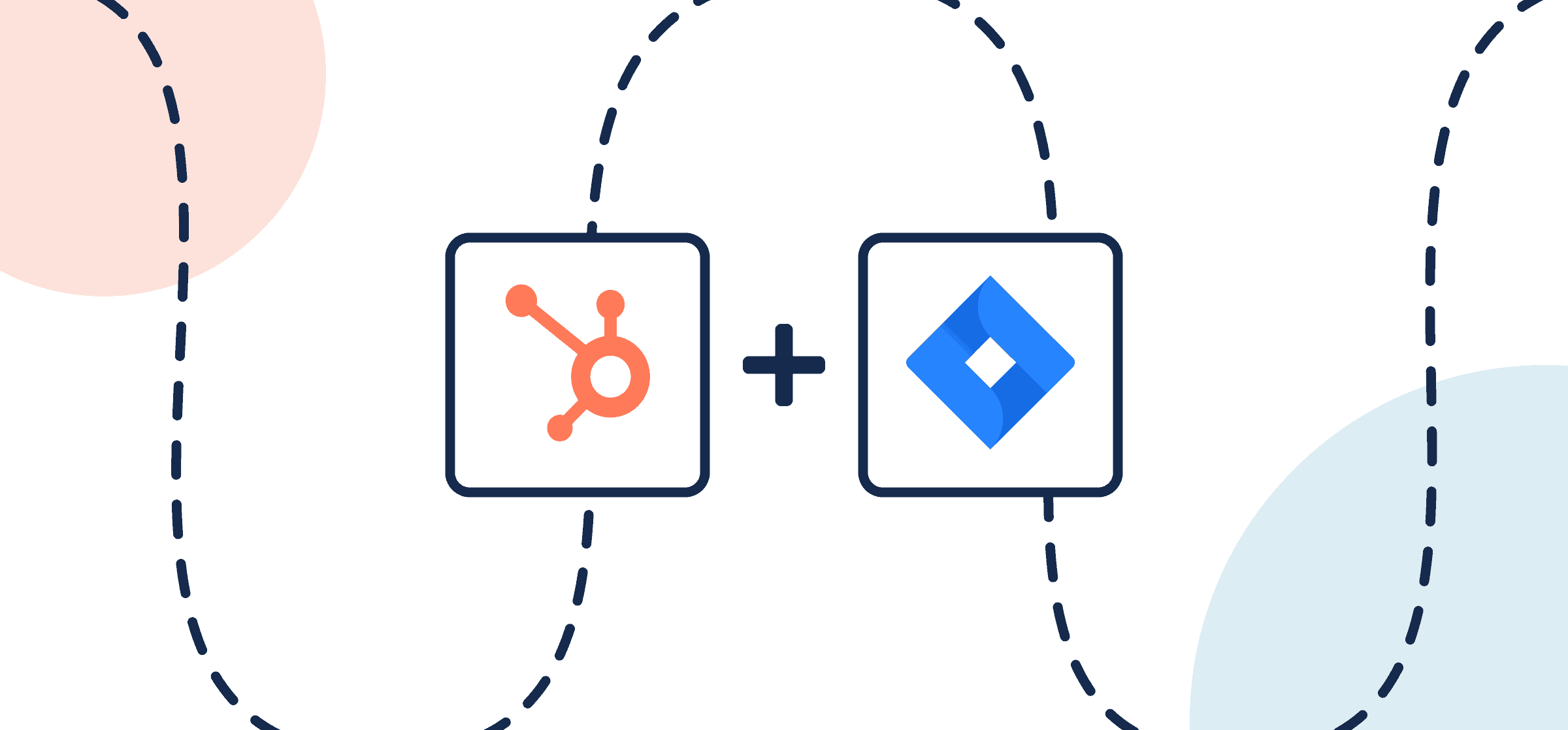How to Sync Tickets from HubSpot to Jira Cloud Automatically with 2-Way Updates
If you have teams working in HubSpot and Jira simultaneously, then this is the guide you’ve been looking for. We’ll show you how to break out of data siloes and stop performing manual updates in each tool, or relying on project managers or other teammates jumping back and forth between them to share information. You can cut that wasted time out of your day with a simple code-free 2-way integration that turns HubSpot tickets into Jira issues and vice versa with automated updates from end-to-end.
These step-by-step instructions will show you how to automatically escalate HubSpot tickets to an escalation queue in Jira with Unito’s two-way ticketing sync. Simply put, it allows you to turn HubSpot tickets into Jira issues and vice versa. The same steps outlined below can also be used to sync Jira issues with HubSpot deals or tasks, but for the purposes of this guide we’ll be focusing exclusively on tickets.
Here’s our HubSpot ticket synced to a Jira Epic with Unito:
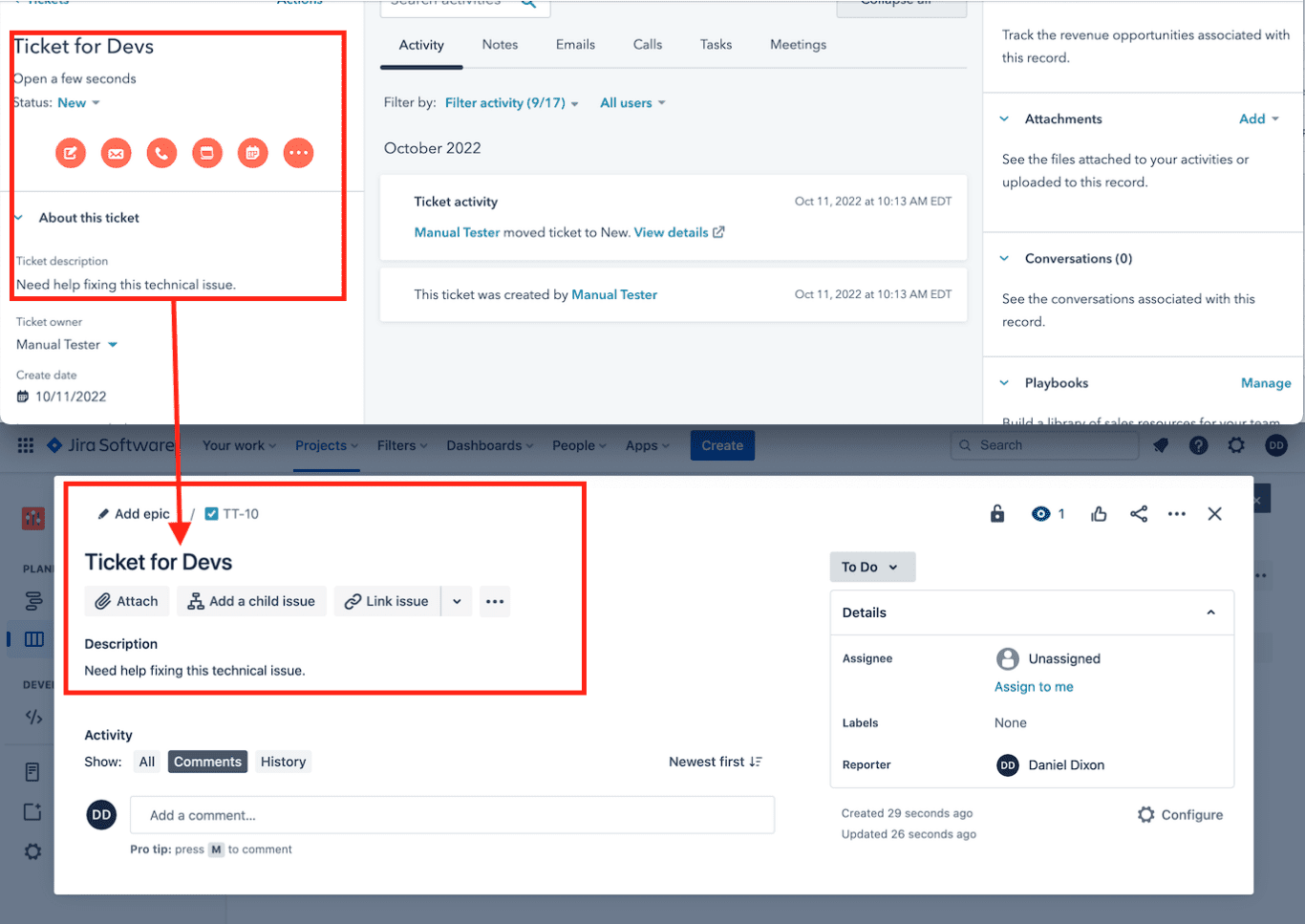
Why build a ticket escalation queue with Unito?
Connecting HubSpot and Jira with Unito simplifies and streamlines the process of assigning work for your teams across both tools. If you have one squad in Jira and another in HubSpot, it enables them to collaborate without having someone jump back and forth between apps. Instead, tickets created in HubSpot instantly become Jira issues that are kept in sync through Unito’s real-time two-way integration.
It can save valuable time by eliminating manual input for software development teams, engineers, product managers, project management, and anyone else who uses Jira. Instead of having your highly-skilled team members perform minor updates or copy-paste redundant messages, they can automate that work to focus on priorities.
This integration can also be used to align customer support and development teams, share issue status, due dates, descriptions, and other fields between Jira instances for better collaboration.
Before we sync issues between Jira Cloud and HubSpot:
There are a few steps involved before we can set up a two-way sync with Unito, but we promise it’s worthwhile. The benefit of eliminating manual tasks for your team indefinitely far outweighs the time it takes to set up your automation rules now. So let’s dive in.
- You’ll need to configure Jira for Unito access before building your flow if you haven’t already done so.
- Make sure your account has administrator access with global permissions.
- Set your Jira email contact visibility to anyone.
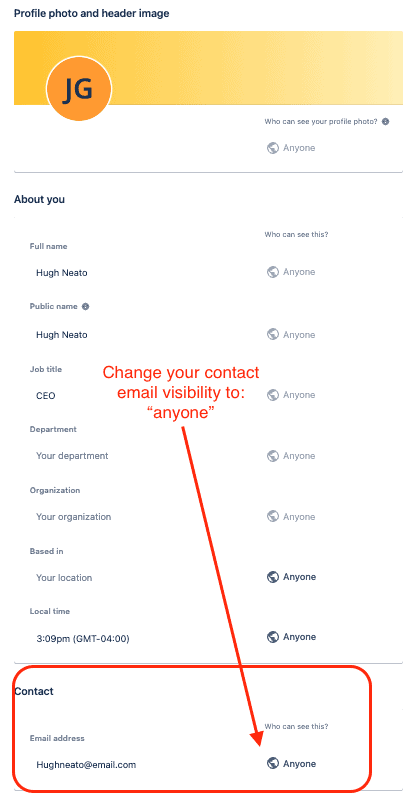
This flow has two goals:
- Create new issues in Jira Cloud based on HubSpot tickets that have been flagged for escalation.
- Maintain a live ticketing queue between HubSpot and Jira that functions automatically in real-time without maintenance.
Step 1: Connect Jira Cloud and HubSpot to Unito
- Login the Unito App and click + Create Flow.
- Next, click Start Here to connect your tools.
- Select +Add a tool to this flow in either column
- Then, +Choose account to specify the Jira and HubSpot projects you plan on syncing.
- Click Confirm.
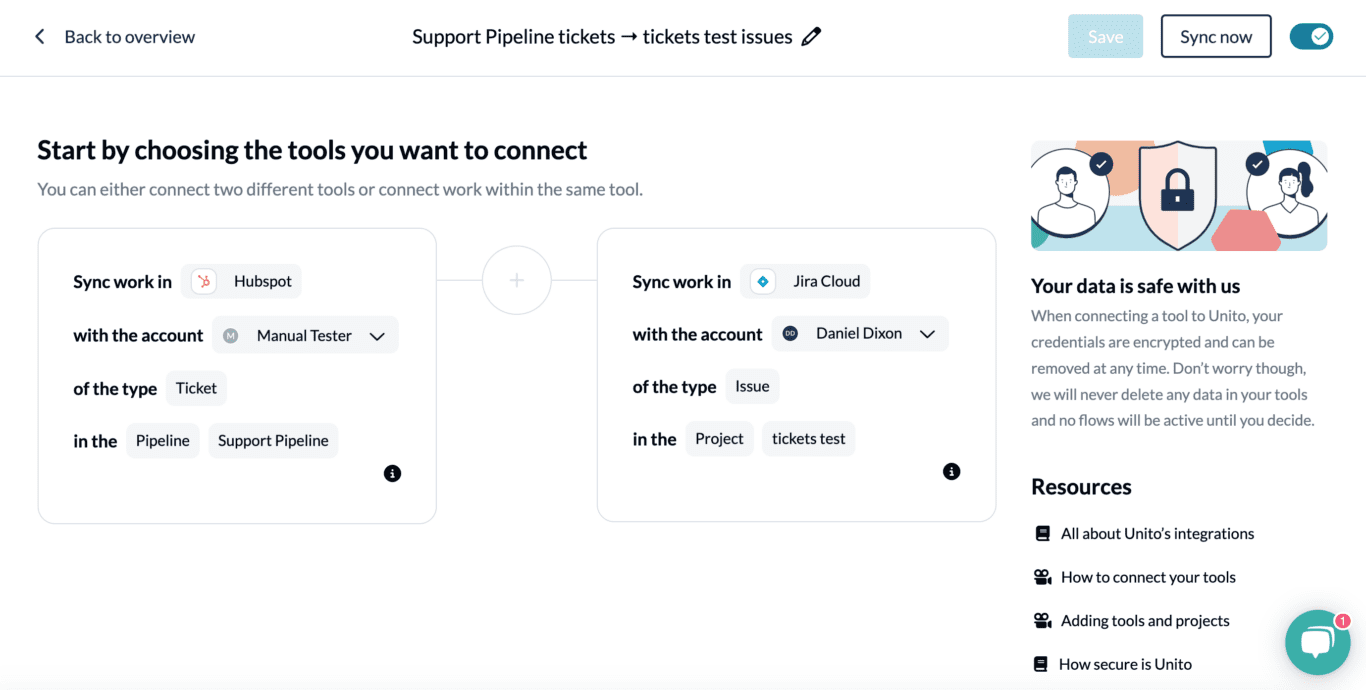
Note: Since we’re automating the issue escalation process, make sure you select the Jira Cloud project that will host all the issues you’d like to sync from HubSpot. If you have more than one project to sync with HubSpot, you can duplicate this flow afterwards.
Step 2: Set a flow direction between HubSpot and Jira
- Click on the arrow that points to your Jira project. This will create new issues in Jira for the development team based on certain actions taken in HubSpot, which we’ll explain in the next step.
- Click Confirm.
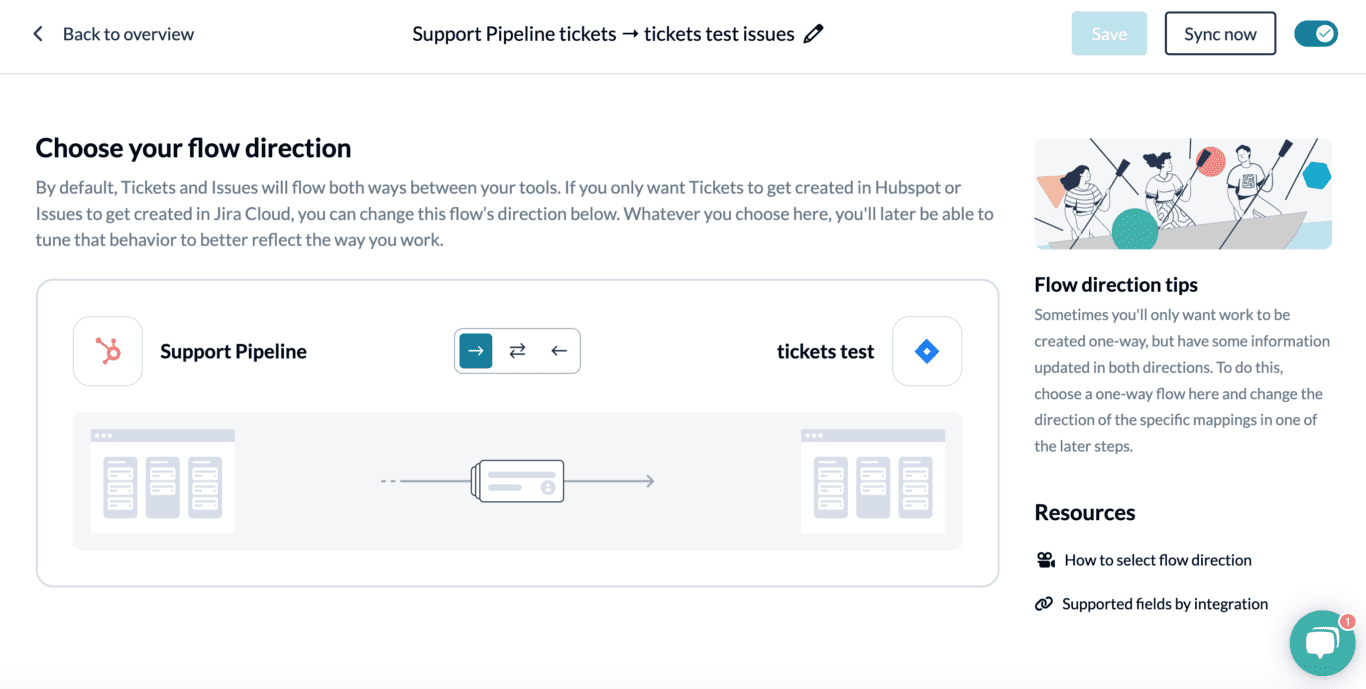
Step 3: Set conditions to specify which HubSpot tickets to sync with Jira
- Select Add a new trigger and search the list for the label you created for issue escalation. In our case, we selected the “escalating” label.
- Select Confirm.
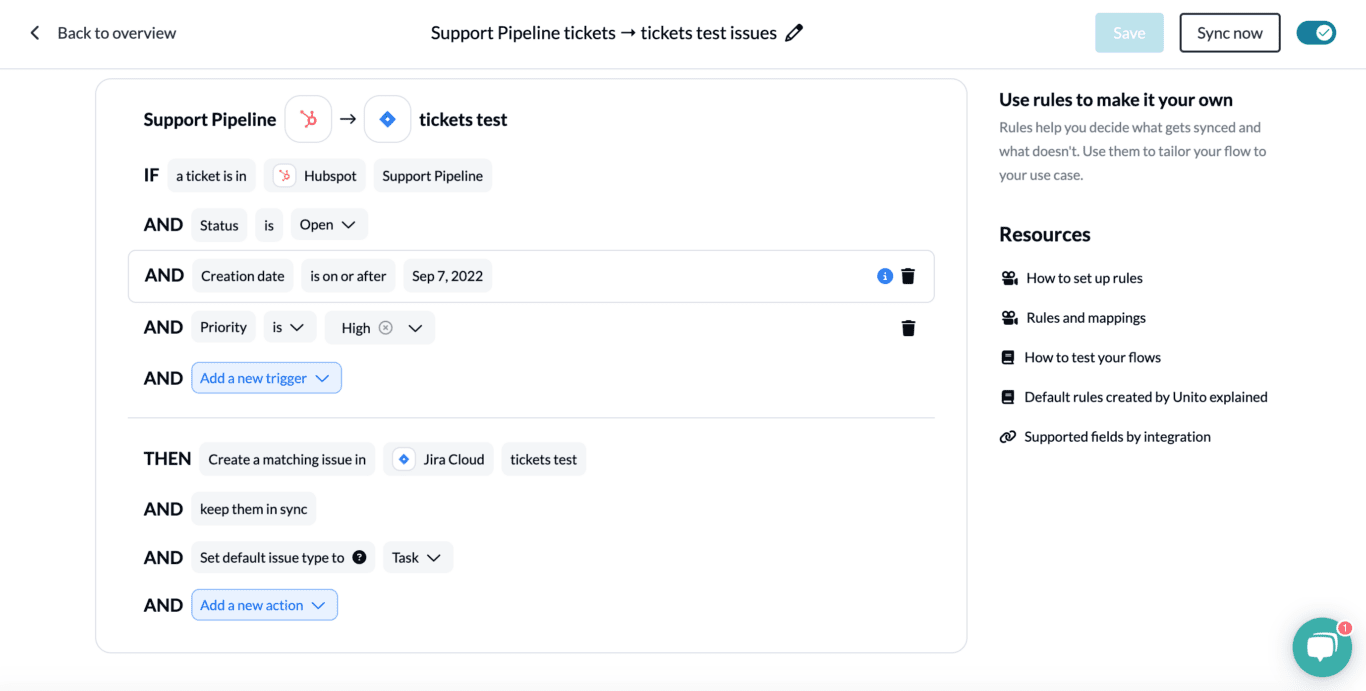
This is a basic set of rules that turns specific High Priority HubSpot tickets into Jira issues. When you’re more comfortable building flows with Unito, you can create a more advanced set of rules to better suit your needs. For example, you could tell Unito to create Jira issues based on HubSpot tickets with a specific label, assignee, customer, etc.
Learn more about building rules here.
Step 4: Select which ticket details to keep in sync between Jira and HubSpot
When you open this screen, you can choose to set up your field mappings manually, or have Unito auto map them first. Auto-mapping is great if you like the idea of starting from a template, while manual mapping is better for those who prefer a DIY approach. In either case, we’ll show you the precise set of fields to use for your ticketing queue.
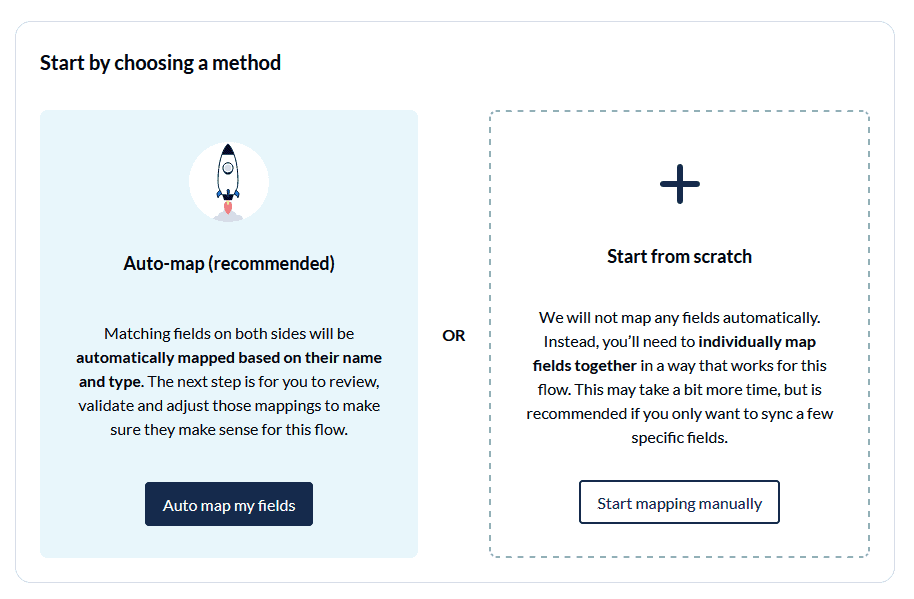
Below you’ll see our completed field mappings so that you can try to build something similar. As you can see, all our field mappings are intuitive: create date maps to start date, status to Issue status, content to description, etc. You can modify these as you see fit, and if you’re not sure where to map a certain field, you can always send it to the description footer and re-organize within Jira later.
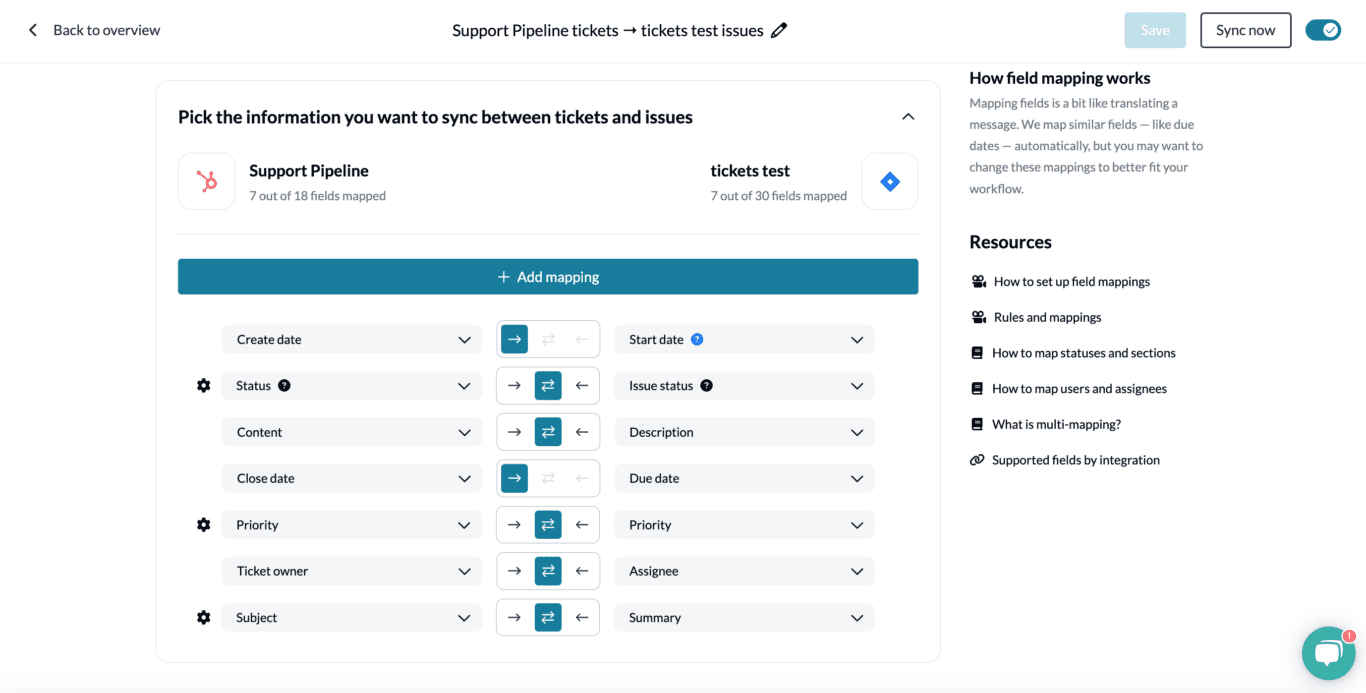
If you see a gear (or cog) icon beside a field, that means you can modify specific values within that field for additional customization. These are all based on your own custom fields, labels, titles etc.
You can learn more about field mappings here.
Click Confirm when you’re ready to proceed.
Step 5: Save, close, and launch your HubSpot to Jira ticketing escalation queue!
And that’s it! Just like that, you’ve built a flow to automate the ticket escalation process from HubSpot to Jira Cloud.
If you’ve followed the steps above, your flow will now:
- Create a new Jira issue for your dev team every time the HubSpot team creates High Priority tickets.
- Keep those tickets/issues in a two-way real-time sync.
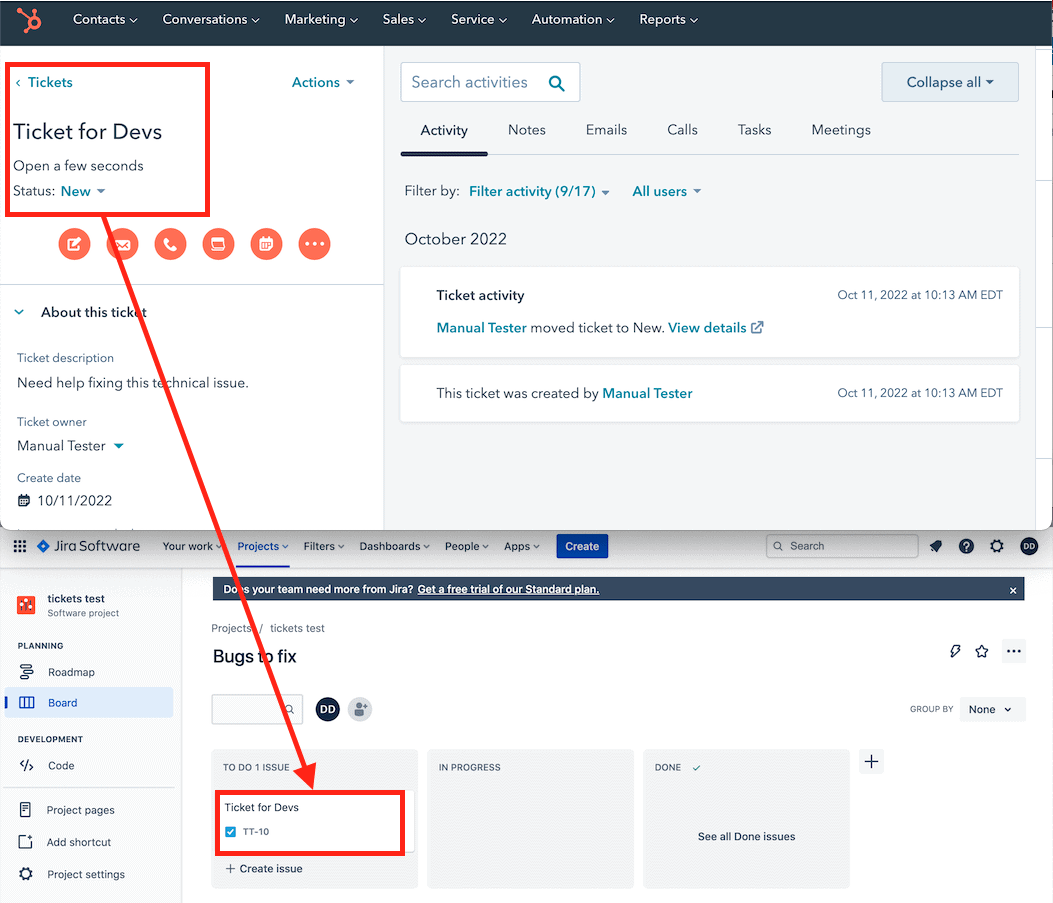
What’s next after you sync Jira and HubSpot with Unito?
Duplicate your flow
Unito’s flow duplication feature lets you copy existing flows, keeping your rules, mappings, and many other settings intact. This allows you to sync multiple Jira projects or epics to a master without starting each flow from scratch.
Discover more Unito use cases for your tools
- Promote collaboration between technical and non-technical teams by syncing Jira with Trello or Asana.
- Read a case study from a Unito user who did just that.
- Learn how to sync Trello cards between multiple boards with Unito.
- Connect monday.com tasks to HubSpot
- Sync Jira issues with Trello cards
